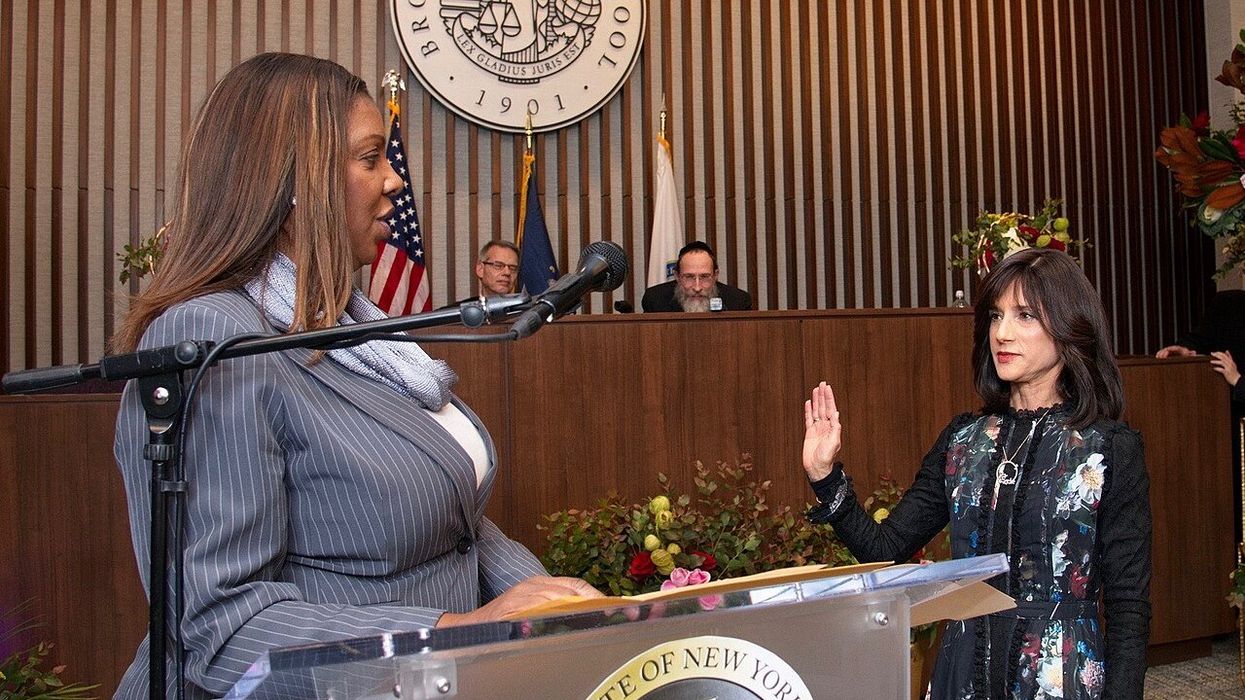Analysis dismantles 2 main myths about Trump civil fraud case

New York State Attorney General Letitia James swearing in New York Supreme Court Justice Rachel Freier in November 2023 (Creative Commons)
March 26, 2024 | 12:17PM ETTrump
Previously, Monday, March 25 was the deadline for former President Donald Trump to come up with a $464 million bond in New York State Attorney General Letitia James' civil fraud case against him. But a New York appeals court, that day, gave Trump some wiggle room when it ruled that instead, he must come up with a $175 million bond within ten days.
If Trump posts that bond, the appellate judges said, it will delay the $464 million sanction (factoring in interest) that Justice Arthur Engoron ordered him to pay in James' lawsuit. The appeals court decision doesn't throw out James' case or Engoron's ruling, but it delays enforcement of the fine while Trump and his lawyers are appealing the judgement.
In an opinion column published on March 26, the Washington Post's Catherine Rampell challenges two "myths" about James' civil fraud case.
READ MORE: Letitia James shreds Trump’s 'practical impossibility' claim
"The objections usually boil down to two arguments — first, that Trump's white-collar cases are 'victimless' and therefore not worth enforcement, and second, that every lawsuit and charge against him plays into his persecution narrative, thereby strengthening him as a presidential candidate," Rampell explains. "Both criticisms are off-base, at least in a society that values rule of law."
James, in her lawsuit, complains that Trump deceived banks and lenders by seriously inflating the value of his assets — an act that, Rampell writes, is not harmless.
"Giving Trump financial products he should not have qualified for ultimately reduced resources available for other, honest borrowers," Rampell argues. "At the very least, any loan applicant who played by the rules — who reported their assets, liabilities and income accurately — could not have acquired such favorable terms as Trump did. Consider what a productive borrower could have done with the millions of dollars in loans Trump got on the cheap."
The Post columnist also takes on the argument that "prosecutors should stand down because they're only making Trump stronger."
READ MORE: Judge Engoron kept a back-up plan to keep Trump from any 'funny business': ex-prosecutor
"The political fallout of these cases is ambiguous," Rampell writes. "Being held accountable for crimes and civil infractions might make Trump more popular with some voters and less popular with others. The net effect could well be a wash. But whatever the effect is, it should have zero bearing on prosecutors' decisions to bring such cases."
READ MORE: Analyst details Trump’s history as a 'serial bankruptcy artist': 'His siblings had to bail him out'
Catherine Rampell's full Washington Post column is available at this link (subscription required).